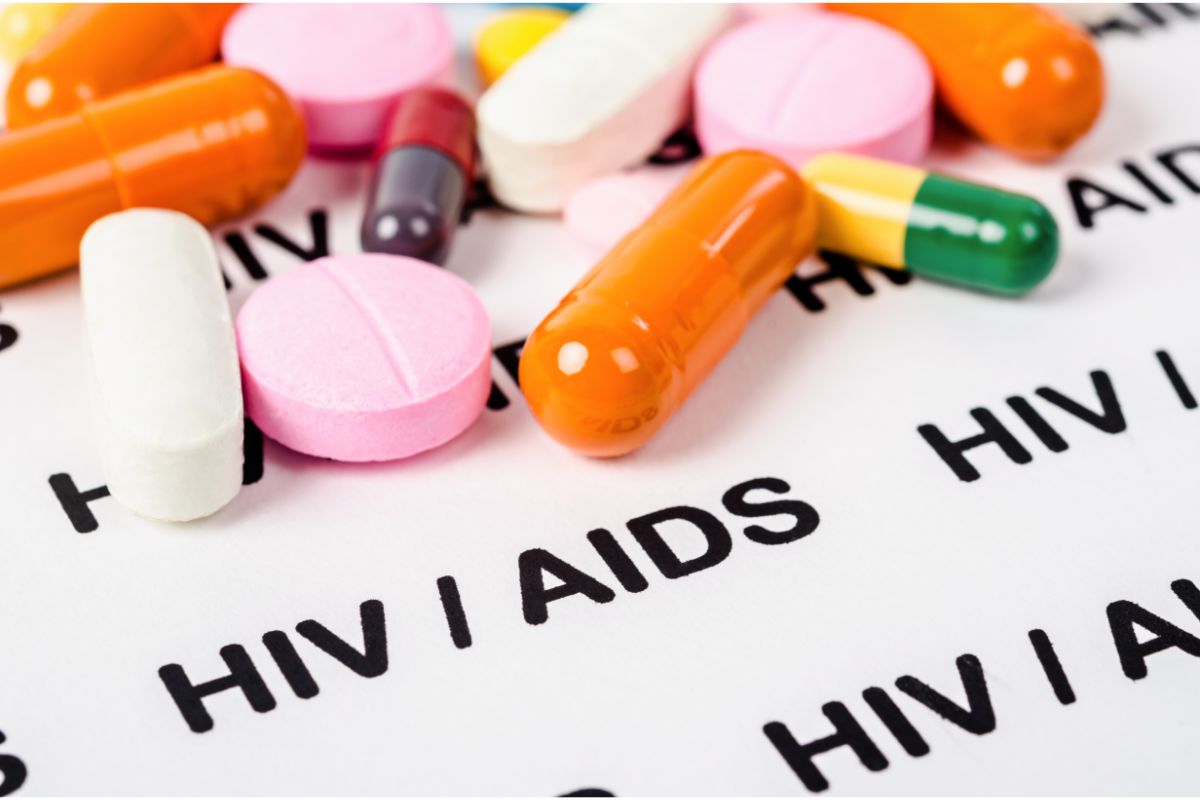When it was first identified in the United States, HIV was considered a death sentence. Sufferers were mistreated, abused, and shrugged off, and the medical field struggled to find its trace origins and create effective treatments.

Since the 1980s, the stigma around HIV has begun to wane, and as scientists have learned more about its emergence and spread, we’ve been able to create effective ways to help sufferers manage their symptoms and live healthy, long lives.
However, if you’ve discovered that your partner is HIV positive, you may be feeling scared for your own health. Is it still possible to maintain a relationship with your partner, and how can you protect yourself against HIV?
What Is Hiv?
HIV, or human immunodeficiency virus, is a virus that targets the body’s immune system, damages our cells, and compromises our ability to fight everyday diseases and infections. HIV specifically targets our white blood cells or CD4 cells.
Unfortunately, the human body cannot get rid of HIV, and there’s no cure. Once you have HIV, you have it for life – but this doesn’t mean it can’t be managed.
How Is Hiv Spread?
HIV is spread through contact with infected bodily fluids or through sharing drug equipment. It’s most commonly spread via unprotected sex with an infected person.
Most people infected with HIV contract it through anal or vaginal sex, but it can also be transmitted through blood and breast milk. HIV cannot be spread through kissing. Evidence has shown that although HIV is spread via infected bodily fluids, saliva is an exception.
Hiv: The Symptoms
HIV can be detected after a day or two of being infected. It’s first found in the lymphatic tissue, and after six days, it can be observed in the regional lymph nodes. Then, two weeks after infection, HIV can be found in the nervous system and the rest of the body.
However, symptoms may not be noticeable straight away. If you’ve been infected with HIV, you will usually start to see signs around six weeks after you’ve been infected. The most common symptoms of HIV include:
- Joint and muscle aches
- A rash
- Fatigue
- Larger lymph nodes
- A fever
- Headaches
- Oral leukoplakia
- Night sweats
- Oral candida
- Tinea infections
Unfortunately, these symptoms are also indicators of other viral infections and diseases. The only way to eliminate HIV is to get yourself tested.
The symptoms of HIV (see also ‘What Are The Main Symptoms Of HIV?’) are so minor that many infected patients can go years without experiencing symptoms or finding out their diagnosis. So if you think you’ve been exposed to HIV, get tested immediately.
How Do I Protect Myself Against Hiv?
If your partner has HIV, there’s no reason why you can’t continue to have a healthy, happy relationship together without compromising your health.
Although decades-old stigma continues, HIV is no longer a death sentence. This doesn’t mean it isn’t dangerous, but it does mean that people living with HIV, with treatment, can go on to live healthy and fulfilling lives. If your partner is HIV positive, you can do a few things to protect yourself. These include:
Pre-Exposure Prophylaxis (Prep)
If you’re living with an HIV-positive partner, you may be offered PrEP (see also ‘How Much Does PrEP Cost?‘) or pre-exposure prophylaxis. This medication can be provided to people at risk of HIV to reduce their risk of contracting the virus through drug use or sex.
Pre-exposure prophylaxis can be up to 99% effective when taken as prescribed. PrEp works by building ‘walls’ around the body’s CD4 cells. These walls can prevent HIV from attacking healthy cells and replication.
If you take PrEp and come into contact with HIV, it will be unable to attack your cells. PrEp usually becomes effective after seven days of taking it.
If you’re taking prEp consistently, it’s very unlikely that you’ll contract HIV. If you’re taking prEp, you can have sex without condoms (see also ‘Do Condoms Always Prevent HIV Transmission?‘), and not risk contracting HIV. If you’re concerned about exposure, you can continue to wear condoms for extra protection.
Use Condoms
One of the most effective ways to prevent catching HIV is to wear a condom. Even if your partner’s viral load is undetectable, condoms are one of the best preventative methods you can use. If you don’t want to take prEp, wearing a condom is especially important.
Not only can condoms prevent the spread of HIV, but they can also protect you both from other sexually transmitted infections such as herpes, syphilis, chlamydia, and gonorrhea.
Practice Safer Sex
Safe sex isn’t just about wearing condoms. If you want to reduce your chances of catching HIV, you should talk to your partner about alternative ways to enjoy sex.
This could involve engaging exclusively in oral sex, which is less risky than anal or vaginal sex. If you do have oral sex with your partner, using devices such as dental dams can give you an extra layer of protection.
You could also discuss having ‘outercourse’ rather than ‘intercourse’’ with your partner. Mutual masturbation is a perfect example of outercourse. Mutual masturbation can be pleasurable for both you and your partner, and you won’t have to come into contact with their bodily fluids, drastically reducing your chances of catching HIV.
Sex and intimacy are essential for almost all relationships. If your partner has HIV, you don’t have to avoid having sex. Be prepared to have healthy and open discussions about your sex life, and you’ll find there are plenty of options that allow you both to remain intimate, safe, and satisfied.
If your partner has HIV, you can also keep yourself safe by:
- Finding out their viral load count (this will determine your risk of infection)
- Avoid sharing needles
- Get tested regularly
Final Thoughts
Discovering your partner has HIV can be an emotional whirlwind for both of you. Remember: HIV is not the death sentence it used to be, and with treatment and management, your partner can continue to live a healthy and happy life.
As long as you’re taking steps to keep yourself safe, your risk of contracting HIV is minimal, and you can still enjoy being intimate with your partner.
- Understanding Male Reproductive Health: A Complete Guide - February 2, 2025
- Simple Healthy Skin Habits for Radiant Skin - December 6, 2024
- Unlocking the Connection Between Nutrition and Mental Health - December 3, 2024








